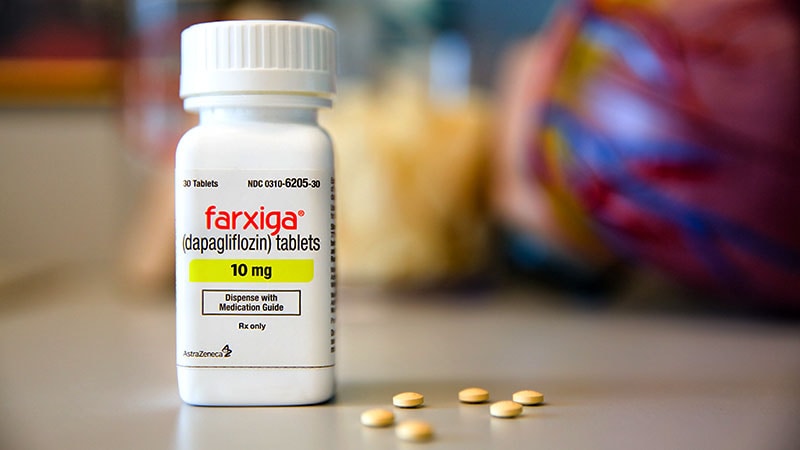Keskeiset käsitteet
Diabetes pills can protect hearts and kidneys.
Tiivistelmä
The study discusses how sodium-glucose cotransport protein 2 (SGLT2) inhibitors, commonly used by people with type 2 diabetes to manage blood sugar, also offer protection to the heart and kidneys. These drugs reduce blood sugar levels in the kidneys by increasing glucose excretion in urine. The research analyzed data from over 230,000 adults with type 2 diabetes, focusing on the effects of SGLT2 inhibitors on patients with acute kidney disease (AKD). The study found that patients who received these inhibitors had lower mortality rates and fewer kidney and heart complications compared to those who did not. Despite the positive outcomes, the prescription rate of SGLT2 inhibitors remains low, highlighting the need for increased awareness and consideration in clinical practice.
Common Diabetes Pills Also Protect Kidneys
Tilastot
SGLT2 inhibitors reduce blood sugar in the kidney by causing more glucose to be excreted in urine.
The relative reduction in mortality risk for people in the SGLT2-inhibitor arm was 31%.
Only 2.3% of patients with AKD in the study were prescribed an SGLT2 inhibitor.
In the United States, approximately 20% of people with type 2 diabetes and CKD receive a SGLT2 inhibitor.
Lainaukset
"There has been a notable absence of targeted pharmacotherapy to offer protection to these patients." - Vin-Cent Wu, MD, PhD
"The findings are reassuring that the medications work even in people who've already had some kidney injury beforehand." - Ayodele Odutayo, MD, DPhil
Tärkeimmät oivallukset
by Marcus A. Ba... klo www.medscape.com 01-09-2024
https://www.medscape.com/viewarticle/common-diabetes-pills-also-protect-kidneys-2024a10000m2
Syvällisempiä Kysymyksiä
How can healthcare providers increase the prescription rate of SGLT2 inhibitors among patients with type 2 diabetes and AKD?
Healthcare providers can increase the prescription rate of SGLT2 inhibitors by raising awareness among clinicians about the benefits of these medications in managing type 2 diabetes and kidney disease. This can be achieved through educational programs, seminars, and guidelines that highlight the positive outcomes associated with SGLT2 inhibitors. Additionally, incorporating these medications into treatment protocols and guidelines for patients with type 2 diabetes and AKD can help normalize their use and encourage healthcare providers to prescribe them more frequently.
What are the potential side effects of SGLT2 inhibitors, and how can clinicians mitigate these risks effectively?
Some potential side effects of SGLT2 inhibitors include low blood pressure, dehydration, urinary tract infections, and ketoacidosis. Clinicians can mitigate these risks effectively by closely monitoring patients for signs and symptoms of these side effects, especially during the initial stages of treatment. Educating patients about the importance of staying hydrated, monitoring their blood pressure regularly, and seeking medical attention if they experience any unusual symptoms can also help in managing and preventing potential side effects of SGLT2 inhibitors.
How can the findings of this study impact the development of new treatment guidelines for patients with type 2 diabetes and kidney disease?
The findings of this study can significantly impact the development of new treatment guidelines for patients with type 2 diabetes and kidney disease by highlighting the benefits of SGLT2 inhibitors in improving outcomes for these individuals. Incorporating the use of SGLT2 inhibitors as a recommended treatment option in guidelines for managing type 2 diabetes and kidney disease can lead to better patient outcomes and reduced risks of complications. This study provides valuable evidence supporting the inclusion of SGLT2 inhibitors in treatment protocols for patients with type 2 diabetes and kidney disease, potentially leading to updated guidelines that prioritize the use of these medications for improved patient care.
0
